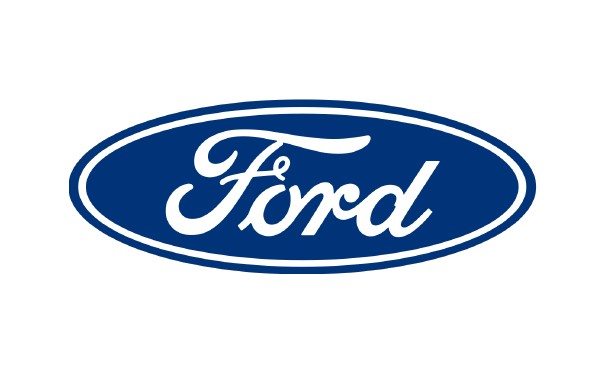Ford Motor Reports Strong Q4 Results, Shares Gain 4%

Ford Motor Company (NYSE:F) outperformed Wall Street forecasts with its fourth-quarter results and presented an optimistic outlook for the year ahead, causing its shares to rise by over 4% intra-day today.
The automaker announced adjusted earnings per share (EPS) of $0.29 on revenue of $46.00 billion, surpassing the expectations of analysts, who had projected an EPS of $0.12 on revenue of $43.04 billion.
For 2024, Ford set its sights on adjusted earnings before interest and taxes (EBIT) between $10 billion and $12 billion, with adjusted free cash flow in the range of $6 billion to $7 billion.
| Symbol | Price | %chg |
|---|---|---|
| 005389.KS | 197500 | -0.2 |
| 005380.KS | 269000 | 0.19 |
| 005385.KS | 198000 | 0 |
| 005387.KS | 199800 | -0.1 |

Ford (NYSE:F) Maintains "Sector Perform" Rating by RBC Capital with Updated Price Target
- RBC Capital maintains a "Sector Perform" rating for Ford (NYSE:F), suggesting a cautious outlook despite the stock's recent performance.
- Ford's third-quarter earnings exceeded analyst expectations, but earnings have declined year-over-year, adjusting its 2025 EBIT forecast to between $6 and $6.5 billion.
- The stock's current price reflects a 10.01% increase, indicating significant volatility and strong investor interest despite challenges.
On October 24, 2025, RBC Capital maintained its "Sector Perform" rating for Ford (NYSE:F), advising investors to hold their positions. At the time, Ford's stock was priced at $13.69. RBC Capital also increased Ford's price target to $12 from $11. This suggests a cautious outlook, despite the stock's recent performance.
Ford recently reported its third-quarter earnings, which exceeded analyst expectations. However, earnings have declined compared to the previous year. The company adjusted its 2025 earnings before interest and taxes (EBIT) forecast to between $6 and $6.5 billion. This adjustment is due to a fire at the Novelis plant, as highlighted by Zacks.
Currently, Ford's stock is priced at $13.58, reflecting a 10.01% increase, or $1.24, from previous levels. The stock has seen a daily range between $12.72 and $13.72, with the latter being its highest price in the past year. The lowest price in the past year was $8.44, indicating significant volatility.
Ford's market capitalization is approximately $53.06 billion, with a trading volume of 163.44 million shares. This high trading volume suggests strong investor interest, despite the challenges the company faces. The stock's performance and market activity reflect the mixed signals from RBC Capital's rating and Ford's revised financial outlook.

Ford Motor Company's Stock Update and Industry Position
- Jefferies upgraded Ford Motor Company (NYSE:F) to "Hold" from "Underperform," indicating a neutral outlook on the company's future prospects.
- Ford's stock price increase to $12.67 reflects investor interest despite challenges in the electric vehicle (EV) market.
- The company's Ford Pro segment shows strong performance, contrasting with significant losses in its Ford Model e segment.
Ford Motor Company, trading under the symbol "F" on the NYSE, is a well-known player in the automotive industry. The company is recognized for its wide range of vehicles, including trucks, vans, and electric vehicles. Ford faces competition from other major automakers like General Motors and Tesla, especially in the electric vehicle market.
On October 6, 2025, Jefferies upgraded Ford's stock to "Hold" from "Underperform," as reported by TheFly. At that time, the stock price was $12.67. This upgrade suggests a more neutral stance on Ford's potential, reflecting a shift in perception about the company's future prospects.
Currently, Ford's stock is trading below $12, which might attract investors looking for undervalued opportunities. Despite its rich history, Ford's valuation suggests that its individual segments could be worth more than the company as a whole. However, Ford is struggling to keep pace with the fast-changing automotive industry.
In the first half of 2026, Ford's Ford Pro segment, which includes light trucks and vans, showed strong performance. This contrasts with the low-margin internal combustion engine and hybrid car business in Ford Blue. Ford's electric vehicle segment, Ford Model e, reported a significant loss of $5.1 billion last year, highlighting challenges in the EV market.
Ford's stock is currently priced at $12.67, reflecting a 3.68% increase from the previous session. The stock reached a low of $12.20 and a high of $12.67 today, marking its highest price over the past year. With a market capitalization of approximately $49.53 billion and a trading volume of 94.89 million shares, Ford's stock remains a focal point for investors.

Ford Motor Company's Stock Analysis and Future Prospects
- Ford Motor Company faces challenges in the EV market but shows promise in its Ford Pro segment.
- Jefferies upgraded Ford to Hold from Underperform with a price target of $12, indicating a cautious but improved outlook.
- Ford's EV segment, Ford Model e, reported a significant loss, highlighting the need for strategic adjustments in this rapidly evolving sector.
Ford Motor Company, trading under the symbol "F" on the NYSE, is a well-known player in the automotive industry. With a rich history in manufacturing vehicles, Ford is a household name. However, the company faces stiff competition from other automotive giants and new entrants in the electric vehicle (EV) market.
On October 6, 2025, Philippe Houchois from Jefferies set a price target of $12 for Ford. At that time, Ford's stock was priced at $12.67, indicating a price difference of approximately -5.29% from the target. TheFly reported that Jefferies upgraded Ford to Hold from Underperform, suggesting a more neutral stance on the stock.
Currently, Ford's stock is trading below $12, which might present an attractive investment opportunity. The company's valuation suggests that its individual segments could be worth more than the whole. However, Ford is struggling to keep pace with the rapidly changing automotive industry, especially in the EV sector.
In the first half of 2026, Ford's commercial business, Ford Pro, showed strong performance, particularly in light trucks and vans. This contrasts with the low-margin internal combustion engine (ICE) and hybrid car business in Ford Blue. Ford's EV segment, Ford Model e, reported a significant loss of $5.1 billion last year, highlighting the challenges in this area.
Ford's stock, currently priced at $12.67, has seen a 3.68% increase today, translating to a $0.45 rise. The stock's trading range today was between $12.20 and $12.67, with the latter being its highest price over the past year. Ford's market capitalization is approximately $49.53 billion, with a trading volume of 94.89 million shares.

Goldman Sachs Downgrades Ford, Shares Down 3%
Goldman Sachs pulled back its bullish stance on Ford (NYSE:F), downgrading the stock from Buy to Neutral and lowering the price target to $9 from $11. As a result, the company’s shares dropped more than 3% on Thursday.
The move reflects growing concern over the automaker’s earnings outlook and macroeconomic challenges.
The firm acknowledged that its previous optimism on Ford’s cyclical momentum was misplaced. Since being added to Goldman’s Buy list in September 2024, Ford’s projected 2025 earnings per share have been slashed by 32%, outpacing the stock’s 10% decline over the same period.
Goldman notes that while the share price has held up better than earnings revisions might suggest, this could be due to improved investor sentiment, successful cost-cutting initiatives, and Ford’s domestic manufacturing presence that may help cushion the impact of rising tariffs.
Despite some positives—such as Ford’s progress on expense management and its positioning in the U.S. for potential tariff-related advantages—Goldman now sees a tougher environment ahead. The firm points to increasing global competition, softening consumer demand, and the likelihood of escalating costs from new tariffs as factors weighing on Ford’s ability to regain traction.
Goldman still sees potential in Ford’s long-term push into software and services, but the timing of that transformation remains uncertain. Without clear signs of a near-term earnings inflection or stronger cyclical recovery, the firm has chosen to step to the sidelines, citing an unfavorable risk-reward balance at current valuation levels.

Goldman Sachs Downgrades Ford, Shares Down 3%
Goldman Sachs pulled back its bullish stance on Ford (NYSE:F), downgrading the stock from Buy to Neutral and lowering the price target to $9 from $11. As a result, the company’s shares dropped more than 3% on Thursday.
The move reflects growing concern over the automaker’s earnings outlook and macroeconomic challenges.
The firm acknowledged that its previous optimism on Ford’s cyclical momentum was misplaced. Since being added to Goldman’s Buy list in September 2024, Ford’s projected 2025 earnings per share have been slashed by 32%, outpacing the stock’s 10% decline over the same period.
Goldman notes that while the share price has held up better than earnings revisions might suggest, this could be due to improved investor sentiment, successful cost-cutting initiatives, and Ford’s domestic manufacturing presence that may help cushion the impact of rising tariffs.
Despite some positives—such as Ford’s progress on expense management and its positioning in the U.S. for potential tariff-related advantages—Goldman now sees a tougher environment ahead. The firm points to increasing global competition, softening consumer demand, and the likelihood of escalating costs from new tariffs as factors weighing on Ford’s ability to regain traction.
Goldman still sees potential in Ford’s long-term push into software and services, but the timing of that transformation remains uncertain. Without clear signs of a near-term earnings inflection or stronger cyclical recovery, the firm has chosen to step to the sidelines, citing an unfavorable risk-reward balance at current valuation levels.

Tariff Troubles Ahead: Bernstein Cuts Ford to Underperform
Ford Motor (NYSE:F) was hit with a downgrade by Bernstein SocGen Group, which adjusted its rating on the stock from Market Perform to Underperform and slashed its price target from $9.40 to $7. The move reflects growing anxiety over the impact of recently implemented vehicle tariffs and the likelihood of additional tariffs on auto parts in the near future.
Bernstein's latest analysis indicates that these trade policy shifts could deal a substantial blow to Ford’s financial outlook. The firm estimates a more than 35% hit to free cash flow, while adjusted earnings projections for 2025 and 2026 have been sharply reduced—by over 41% and 36%, respectively.
Beyond the direct cost of tariffs, the downgrade also factors in a broader deterioration in consumer sentiment, which could weigh on vehicle demand. As the economic and political environment becomes more volatile, Bernstein believes the current valuation fails to fully reflect the downside risks Ford is facing.
With the stock already underperforming and trade-related pressures building, Bernstein expects further weakness and advises investors to brace for a rougher road ahead.

Tariff Troubles Ahead: Bernstein Cuts Ford to Underperform
Ford Motor (NYSE:F) was hit with a downgrade by Bernstein SocGen Group, which adjusted its rating on the stock from Market Perform to Underperform and slashed its price target from $9.40 to $7. The move reflects growing anxiety over the impact of recently implemented vehicle tariffs and the likelihood of additional tariffs on auto parts in the near future.
Bernstein's latest analysis indicates that these trade policy shifts could deal a substantial blow to Ford’s financial outlook. The firm estimates a more than 35% hit to free cash flow, while adjusted earnings projections for 2025 and 2026 have been sharply reduced—by over 41% and 36%, respectively.
Beyond the direct cost of tariffs, the downgrade also factors in a broader deterioration in consumer sentiment, which could weigh on vehicle demand. As the economic and political environment becomes more volatile, Bernstein believes the current valuation fails to fully reflect the downside risks Ford is facing.
With the stock already underperforming and trade-related pressures building, Bernstein expects further weakness and advises investors to brace for a rougher road ahead.







